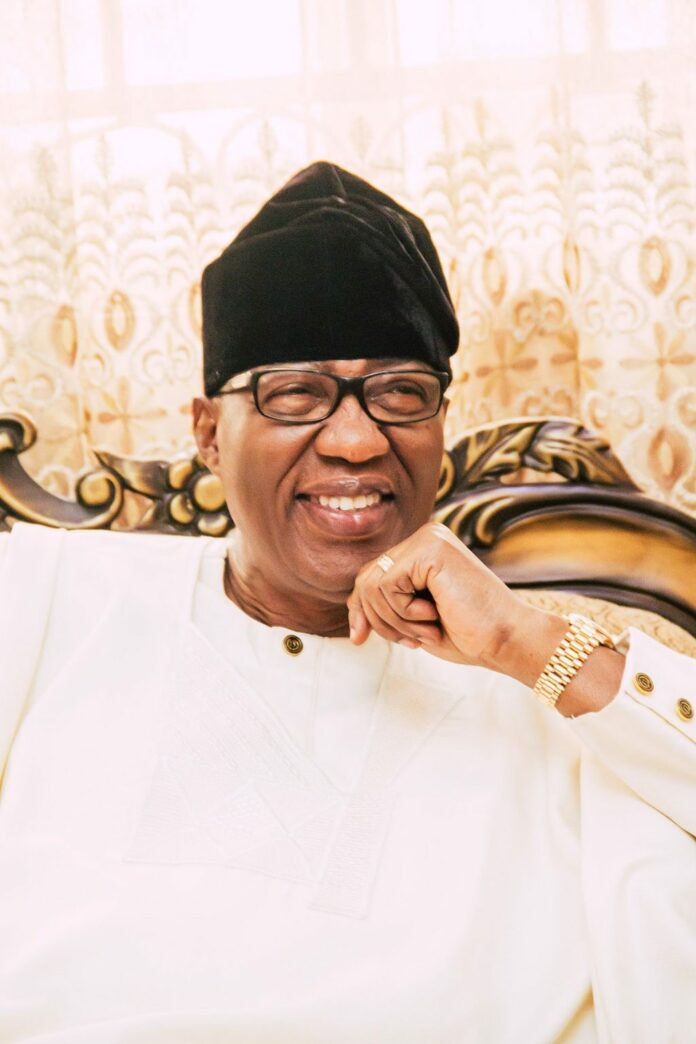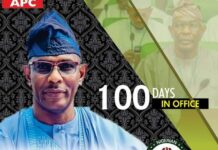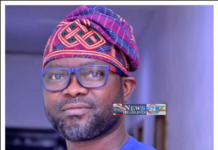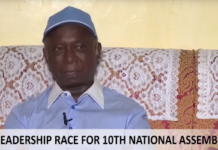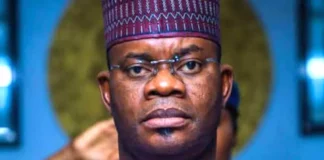Otunba Gbenga Daniel, the former Ogun State governor and a Senator currently representing Ogun East Senatorial district, has explained why the national assembly aligning with the executive should not make the arm of the government a ‘rubber stamp.’
In this interview, OGD, as Senator Daniel is fondly addressed by followers, pointed out the necessity on why both arms of the government should work hands in hands to move Nigeria forward.
Read…
Do you see the possibility of President Bola Tinubu restructuring the country, especially in view of the fact that he was one of those clamouring for the review of the 1999 Constitution to allow for restructuring
I think restructuring should be looked at from the point of view of components, and if you look at what is currently happening even before Tinubu’s administration, some form tinkering has started. One of the biggest problems is security, and one part of the components of restructuring is how to decentralise the police system, and I think that from what I have seen, all the stakeholders have agreed that this current system of central command is not working and once we all agree, we are now hearing things like community policing and state policing, and that’s what restructuring is all about.
Economically, our brothers from the Niger-Delta have always insisted that since most of the country’s revenue comes from their region, they want an increment in the share of the revenue, which is valid. So, I think we should develop along those lines. Thankfully, there are other minerals that have not been discovered, they are scattered everywhere. So, the highlight is that all the resources are coming from a particular location and they are not feeling the impact of those resources. We are now hearing that there is gold in Zamfara and Ilesha. What is being done in the oil industry should be done in those other areas, people from derivation areas should get more. For instance, just like the Niger Delta in case of oil, if Zamfara people get something from gold, the Jos people from Tin, and so on and so forth, everybody will feel that they are getting a fair share.
All this talk about restructuring, I have no doubt in my mind that restructuring is just a fine word simply put that if you are trying something and it’s not working, rearrange it, restructure it and that restructuring has become inevitable, but it may not be the way people are looking at it. We find it hard to see different components of life and see how we can rearrange it.
Some Nigerians have impression that the 10th Senate may not be different from the previous one dubbed rubber-stamp, what is your opinion on this
I have a slightly different view of rubber-stamping, and the people who have this view are coming from the angle that the objective of the executive is different from that of the legislature. My understanding is that though this executive and the legislature are coming from the same party, and ordinarily, if you interrogate their manifesto and things they have to do, they should be on the same page.
I also believe that when the executive and legislature are on the same page, the society is better for it. I have looked at the Ninth Assembly and the number of bills they were able to successfully pass, it was much better than the Eighth Assembly, which people believe was not rubber stamp. I believe that if we are all on the same page believing that we are all out to serve the masses, there should be no major difference. There might be differences in methodology but in terms of the fundamentals, it should be the same.
Even when performing oversight functions
The assumption on oversight functions is that somebody is doing what is right, and somebody is doing what is wrong. Even within the precincts of the executive, if you look at it carefully there are inherent oversight functions. If the governor gives his ministry an assignment, it has a duty to do it to the satisfaction of the governor. The House of Assembly also has oversight functions to complement those supervisions by the governor.
For instance, when I was governor, when I gave instructions to my ministries, they did it right. As a governor, woe betide that I give instructions and they didn’t do it right for that matter. What is important is that we should have the right people in the right places.
We shouldn’t forget that the executive governor or executive president holds the sacred mandate of the people to minister to their needs and that whatever he is doing is in line with that mandate that he has. The legislature does not always have more knowledge than the executive.
In fact, in so many instances the lawmakers have not demonstrated enough in-depth knowledge of some of the things going on there. In the last national assembly, there are many bills that were passed such as the Electoral Act, the Petroleum Industry Bill (PIB) and so on. If you recall, PIB had been on for so long and everyone can attest that the passage of that bill has done a lot in turning around the economic potential of our country in that industry. So, my argument is that the legislature being on the same page with the executive does not mean it is rubber stamp and not doing oversight.
What are the problems of your constituency that you’ll like to articulate in the Senate
We have the problem of erosion and what happened on the floor attest to the fact that it is a national problem, maybe more critical in certain places than others. I articulated what happened in Sagamu, Ijebu Ode; I also did not fail to say what happened in Delta, Kwara, Kogi and some other locations.
So, clearly we are in danger with this issue of flood, which is directly related to global warming, which means that the level of the sea as a result of global warming is becoming higher. With the little physics that we read, water can expand. So, if the temperature of water increases it will expand, so we are all in grave danger as it is indeed a national rather than a regional problem. I’m happy that it was positively received by everybody and we hope that we can begin to do serious things to curtail flooding.
Apart from that, one of the most important roads everyone agrees with is the road that comes from Lagos, the formal capital territory that goes to the North and to the East, which is Lagos-Ibadan expressway, which goes to Ilorin, Kaduna up North. Then the one from Lagos that passes through Sagamu, Ijebu Ode, Benin to Port Harcourt and so on and so forth. Those are far the most important roads in my opinion in our country today.
Now the one that goes from Lagos to Ibadan thankfully will soon be completed, but from Sagamu to Ijebu Ode towards Ore has become a major deathtrap. As part of what I will do, these roads have to be worked on very quickly. There are quite a lot of things that we are working on as well, the airport project which we conceptualised quite a while ago is coming to fruition.
Part of the things we are hoping we can do is to recreate the Technical College in the area that is lying fallow and begin to use that as a point of developing the field of aviation in that area. There are quite a number of things that I would like to do.
Educationally, you know the problems are there all the time, so we just keep working until we are able to say to ourselves that we have done something.
Something is going on right now about tax administration, looking at production and consumption, which one should be taxed more to have a more productive economy? Is that restructuring.?
Not exactly! The first thing I’m going to say, which is fundamental, is people deserve the government they get. The second thing I want to say is that people have said that democracy is not the best form of government and have not been able to find a better one and people also believe that this democratic process is evolutionary. So, you need to put everything in proper perspective.
We are not going to get there same day and I expect that as we let new people with increased awareness work, things will continue to improve. I, therefore, expect the 10th Assembly to be an improvement on the Ninth as I thought probably the Ninth was an improvement on the Eighth Assembly.
What are your expectations on Tinubu’s ministerial appointments
We don’t have information beyond what we see published in the newspapers. I’m hoping the list will come out and we will take it from there. But it’s clear it’s going to be a mixture of technocrats and politicians to balance, also a mixture of people who have worked, people who are not in the party with government, so it’s going to be a pot-pourri. But I know one thing that is going to be paramount, and inevitable is that we are going to have a very efficient cabinet because the man who is sitting on top of that cabinet is very intelligent, that’s my expectation.
There is a clamour that President Tinubu should attach portfolio to the ministerial nominees to aid screening by the National Assembly in view of what happened in the last administration where both the education and interior ministers admitted that they knew nothing about the ministries they were posted to serve
Ideally, it would be nice if the list is coming with complete portfolio, just as you said it will be easier to interrogate and see the feasibility. But that is assuming the President would not have done his own interviews directly or indirectly and because the President knows what he wants in a particular ministry.
We must assume that he would have looked into things and he comes with the complete portfolio that’s fantastic but if he doesn’t I’m not worried because I know he knows what he’s doing. For instance let’s look at the man Aregbesola that you mentioned, who said he didn’t know much about the internal affairs, that does not mean if he has the correct character trait, he would not be able to run the ministry. Sometimes, it’s about character.
Competence is there but it’s also about character, I remember when former President Muhammadu Buhari appointed a former soldier to head the customs. They argued that he was a no nonsense man but the issue was to stop smuggling and he was said to have a character that could not be compromised.
Why did you write Governor Dapo Abiodun to stop your pension as former governor
Let me make a confession. I’m still in shock on the amount of reactions that my letter has generated, and the letter was very clear and straightforward. I don’t think it’s right to collect two salaries that is the way I have looked at it. I was sworn in on June 13 as a senator.
When you get into public office there are things that you have to tidy up. I just said that what are the things I needed to tidy up now that I’m here again and this issue of double payment came up, and I said let me remind the governor that as from this date I would be receiving my emolument as a Senator of the Federal Republic, so kindly step down the one you have been doing for me.
Probably after Senate, I will decide depending on what the law says on the pension for senators. I’ll decide which one I think is better. But I was shocked to see the amount of interest it had developed as people kept saluting that gesture and I just thought it was the right thing to do.



